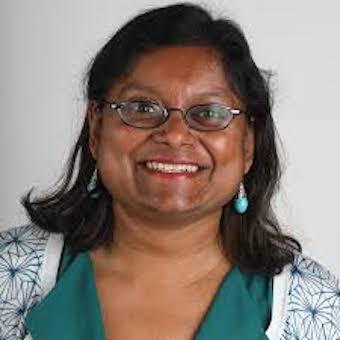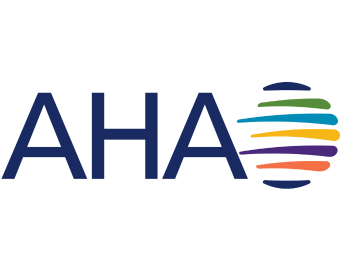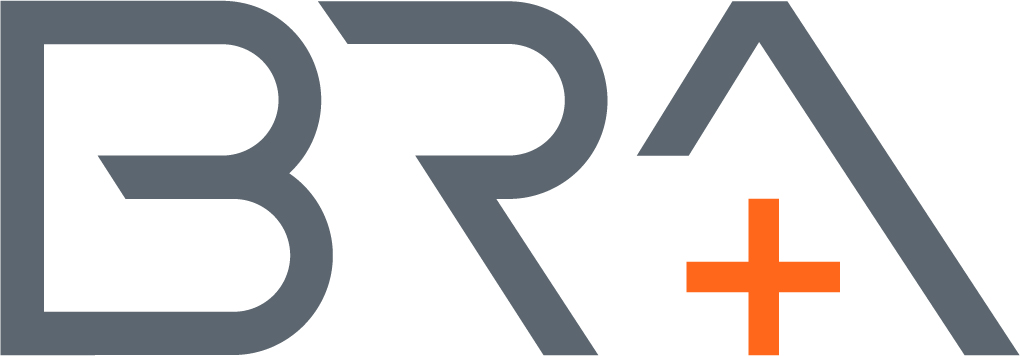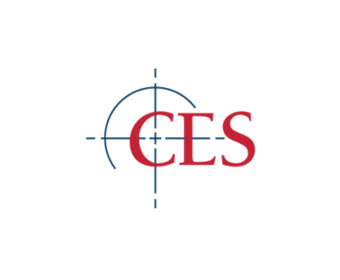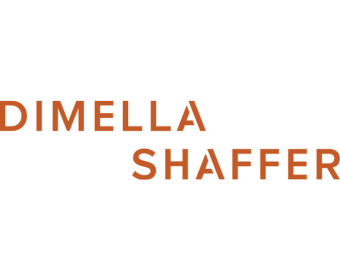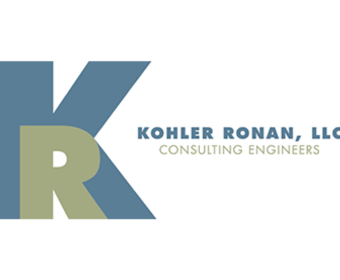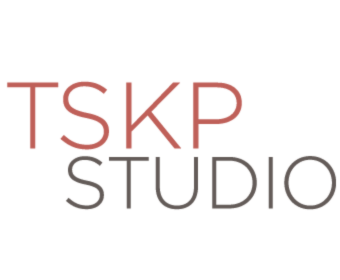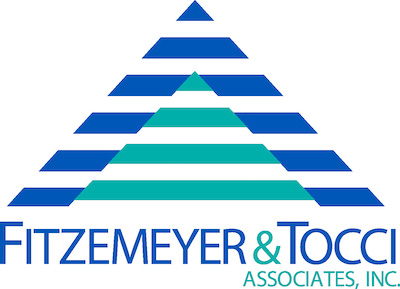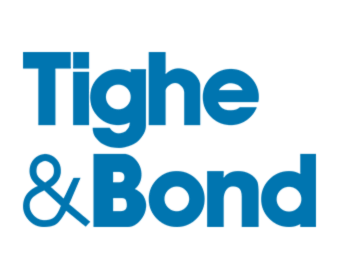- Planning Types
Planning Types
Focus Areas
-
A framework that helps you develop more effective planning processes.
- Challenges
Challenges
Discussions and resources around the unresolved pain points affecting planning in higher education—both emergent and ongoing.
Common Challenges
- Learning Resources
Learning Resources
Featured Formats
Popular Topics
- Conferences & Programs
Conferences & Programs
Upcoming Events
- Community
Community
The SCUP community opens a whole world of integrated planning resources, connections, and expertise.
Get Connected
Give Back
-
Access a world of integrated planning resources, connections, and expertise-become a member!
- Planning Types
Planning Types
Focus Areas
-
A framework that helps you develop more effective planning processes.
- Challenges
Challenges
Discussions and resources around the unresolved pain points affecting planning in higher education—both emergent and ongoing.
Common Challenges
- Learning Resources
Learning Resources
Featured Formats
Popular Topics
- Conferences & Programs
Conferences & Programs
Upcoming Events
- Community
Community
The SCUP community opens a whole world of integrated planning resources, connections, and expertise.
Get Connected
Give Back
-
Access a world of integrated planning resources, connections, and expertise-become a member!

- Event Home
- Program
- Speaking Resources
Access session recordings on the program page.
After the “Fall”: Reimagining the Future
Welcome to the 36th Annual virtual SCUP North Atlantic Regional Conference!
If planning is about making informed choices to serve the institutional mission, then planning for our “new reality” is having a transformative impact on higher education in North America and around the world. Continuing the SCUP North Atlantic Region’s 36-year tradition of exploring current themes and challenges in college and university planning, the Spring 2021 conference will reflect on how we are transforming and reimagining the future of higher education.
We look forward to sharing a variety of concurrent sessions to inform and support your planning and help your institution survive and thrive. The conference will also offer innovative approaches to virtual networking and tours of new and exciting projects at campuses throughout the region.
Featured Speakers
PresidentPratt InstituteReporterBoston GlobePresidentUniversity of LimerickSystem Chancellor for Academic Programs & Senior Vice President for Economic DevelopmentUniversity of MassachusettsPresident and Vice ChancellorMemorial UniversityPresident and CEOThe Future HuntersSponsorship Opportunities
Support your region and gain valuable visibility while you engage in the conversations that will help institutions face today’s challenges and those to come.
Program
How to Access Recorded Sessions
Conference attendee?
- Log in. (Note: Use your existing SCUP login. If you do not know your login information click on “forgot your password” on the login screen. Please do not create a new account.)
- Browse the program below and click the Access Recorded Session button.
Not a conference attendee?
- Complete series** ($249/members; $425/nonmembers) Add to cart.
- Individual sessions ($35/members; $50/nonmembers)
- Select an individual session(s) from this list of recordings, click the session’s title, then click the purchase button. You will need to log in or create an account if you are new to SCUP.
How to Claim CEUs
To claim credits and download a self-report certificate for this conference, please login to the SCUP Events Portal and follow the directions as outlined in this PDF. SCUP will automatically report credits to AIA for attendees who were present for the entire live session and have their AIA member number in their account. After the conference, you claim credit for recorded sessions by filling out an evaluation and taking a quiz.** Note: The recording for the Edie Weiner keynote is no longer available and is not included in this package.
SHOW: All Sessions Workshops ToursWednesday, March 17, 20213:00 pm - 4:00 pmOpening Remarks & Keynote: Edie WeinerPresented by: Edie Weiner, President and CEO, The Future Hunters
This recording is no longer available.
Join leading futurist Edie Weiner as she takes a deep dive into evolving trends and issues affecting the future of higher education:
- What is the imperative to reimagine our future? Is it just challenging us, or is it challenging everybody?
- What does it mean to leave the world of education and enter the world of learning?
- Can a university create franchises in retail settings?
- Can we learn anything from brain research?
- What is the future for individual disciplines?
- Is there a future for peer-reviewed publishing?
Tags: Environmental Scanning, Higher Ed Trends, Teaching and Learning
4:00 pm - 4:45 pmVirtual Happy HourThursday, March 18, 202111:00 am - 12:00 pmKeynote: Katherine NewmanKeynote | Katherine Newman
Presented by: Katherine Newman, System Chancellor for Academic Programs & Senior Vice President for Economic Development, University of Massachusetts
This session will be held as a Zoom Meeting.
As the chief academic officer of the University of Massachusetts system and as a labor market sociologist, Katherine Newman will provide valuable insight on how global changes are affecting the academic, research, and public service mission of higher education. The current public health crisis—as well as other factors such as automation and social change—is accelerating efforts to attract, educate, and retain a range of high achieving, diverse, and unskilled populations of learners. Come learn how your institution can provide experiential learning and hybrid course delivery options that meet the needs of students and employers who are experiencing multiple tectonic shifts in their industries.
Learning Outcomes
- Identify the global changes that are affecting the academic, research, and public service mission of higher education.
- Explain how the public health crisis is accelerating efforts to engage and retain students.
- Discuss options for implementing experiential learning and hybrid course delivery options that best serve students.
- Describe how various industries are changing due to factors like automation and social change.
12:00 pm - 12:30 pmBreak12:30 pm - 1:30 pmConcurrent SessionsReinvigorating a Campus Landmark: Transforming Stirling’s Museum into a Vibrant Academic Building
Presented by: Ben Youtz, Partner, designLAB architects | Nazneen Cooper, Assistant Dean for Campus Design & Planning, Office of Physical Resources & Plan, Harvard University | David Roxburgh, Department Chair, Department History of Art & Architecture, Faculty of Arts & Sciences, Harvard University
All colleges and universities have existing building stock that they need to repurpose in order to fit contemporary campus paradigms. Beginning with the project’s conception and taking you through its planning, design, and construction, we will outline our investigation, historic research, and analysis of Harvard University’s Stirling-designed postmodern museum to inform its transformation into a vibrant academic building housing a variety of programs. In this session, we’ll establish a strategic and creative framework for adaptive reuse that you can use to reposition historic and architecturally-significant buildings on your campus.
Learning Outcomes
- Critically analyze existing buildings on your campus for adaptive reuse potential.
- Present new strategies for the creative repurposing of existing buildings to your campus’s leadership.
- Explain how to implement planning and design strategies that interpret, represent, and preserve the intent of an architectural vision through thoughtful renovation.
- Initiate planning and design review processes to critically assess your project’s design vision through the course of the project.
Continuing Education Units
AIA LU 1.0 Unit (SCUPN21C1076)
AICP CM 1.0 UnitSetting Building Energy Standards: Learning from City, State, and Utility Incentive Programs
Presented by: Michael Grant, Associate, Stantec | Ruth Bennett, Director, Strategic Capital Programs, Tufts University | Kim Cullinane, Senior Energy Efficiency Consultant, Eversource (utility) | John Dalzell, Senior Architect for Sustainable Development, Boston Planning & Development Agency | Jacob Knowles, Director of Sustainable Design, BR+A Consulting Engineers
It isn’t enough that institutions require all-electric campus buildings that rely on renewable energy—they must also be low load and low energy consumption. Individual cities, states, and utility incentive programs are going beyond carbon neutral standards to embrace energy consumption limits. This session will present these new strategies as models and options for campus building energy standards that address a variety of university sustainability goals. Come learn how your institution can avoid re-inventing the wheel when defining truly impactful campus guidelines by using these methodologies to limit energy consumption and peak demand.
Learning Outcomes
- Make the best choices in building energy-use reduction standards and incentives in order to meet your campus’s sustainability goals.
- Effectively advocate for and advance the use of standards and incentives with campus stakeholder groups by showing how those standards have worked effectively for cities, states, and utility incentive programs.
- Explain how to manage building projects using building energy-use reduction standards and incentives by drawing on the experiences and methods used by cities, states, and energy utilities.
- Describe how to effectively coordinate carbon reduction and energy use standards for campus buildings with broader campus-wide sustainability goals.
Continuing Education Units
AIA LU/HSW 1.0 Unit (SCUPN21C1096)
AICP CM 1.0 UnitThe Future Campus: A Dialogue with Three Institutions and a Learning Technologist
Presented by: Meredith Bostwick-Lorenzo Eiroa, Director, Skidmore, Owings & Merrill LLP | Colin Koop, Partner, Skidmore, Owings & Merrill LLP | Michelle Maheu, Director for Planning, Design & Construction, Wellesley College | Alexis Seeley, Director of Education & Opportunity Programs, NYU Tandon School of Engineering | Diana Allegretti, Director for Design and Construction, Cornell Tech | Natalie Shivers, Associate University Architect, Princeton University
Higher education will shape its future through its response to this critical moment: an unprecedented pandemic; rapidly-accelerating climate change; a mobile technology-enabled society; and critical issues of diversity, equity, and inclusion. As new values, core issues, and questions continue to emerge, institutions must face these challenges by weighing different impacts and shifting priorities. A panel of three institutions and a learning technologist will offer their diverse perspectives on these issues and how they’re influencing the physical and virtual campus environment. Come join the dialogue and adopt an inquiry-based mindset to proactively plan for a more agile and resilient future campus.
Learning Outcomes
- Facilitate your own listening sessions with diverse campus stakeholders about how your physical campus will change in the future based on observations of current issues.
- Use strategies to help you navigate current issues as they apply to the future of your physical and virtual campus.
- Discuss how to use new emerging modes of engagement, e-learning, and technology-enabled research.
- Assess your existing on-campus and off-campus assets to prioritize and adapt campus real estate in response to current key issues.
Continuing Education Units
AIA LU 1.0 Unit (SCUPN21C1002)
AICP CM 1.0 Unit1:30 pm - 2:00 pmBreak2:00 pm - 2:30 pmVirtual ToursIsttaniokaksini / Science Commons, University of Lethbridge Virtual Tour
Presented by: Stephen Phillips, Senior Vice President and Business Leader, Buildings North America, Stantec | Michael Moxam, Vice President and Practice Lead for Design Culture, Stantec
This session will be held as a Zoom Meeting.
Isttaniokaksini—the Blackfoot name bestowed on the new Science Commons for transdisciplinary science at the University of Lethbridge—means deep knowledge and awareness growing out of the unknown. The new 32,600 SM collaborative science facility is sited in the iconic coulee landscape adjacent to University Hall, one of noted Canadian architect Arthur Erickson’s most iconic works.
The architecture of Isttaniokaksini / Science Commons realizes the vision to create the most advanced science building in Canada and an incubator for transdisciplinary discovery. Planned for many generations into the future, the design creates a highly sustainable, flexible, and supportive platform for discovering solutions to the challenges facing humanity, nature, and the universe.
Planning Types: Campus Planning
Tags: Facilities Design, Facilities Planning, Interdisciplinary Learning Environments, Learning Environments, Science / Engineering FacilityThe Center for Engineering, Innovation & Sciences, Wentworth Institute Virtual Tour
Presented by: Tom Chung, Principal, Leers Weinzapfel Associates | Shankar Krishnan, Professor, Biomedical Engineering, School of Engineering, Wentworth Institute | Elizabeth Stifel, Executive Director, Boston Civic Design Commission | David Wahlstrom, Vice President for Business, Wentworth Institute of Technology
Join us for a virtual tour of Wentworth Institute’s newest academic building, the Center for Engineering, Innovation & Sciences (CEIS).
The project team members from upper administration, faculty, the City of Boston, and the architect discuss key priorities ranging from academic and social to campus and the wider city and community, which led to the ground-breaking design. The building opened for classes just over a year before the pandemic hit and the presenters will discuss how the building use shifted to remote and hybrid learning as well as plans going forward.
The Jay and Susie Gogue Performing Arts Center, Auburn University Virtual Tour
Presented by: Taylor Dyleski, Director of Production, Auburn University | Christopher Heacox, Executive Director, Auburn University | Josh Stiling, Senior Associate, Wilson Butler Architects | Paul Vaivoda, Principal, Wilson Butler Architects
This session will be held as a Zoom Meeting.
The latest installment of a developing arts district at Auburn University, The Jay and Susie Gogue Performing Arts Center is an 85,000 gross square feet facility consisting of a multi-purpose performance hall, a flexible second venue and outdoor amphitheater, and public front-of-house and technical back-of-house support spaces.
This virtual live tour will feature a mixture of produced video and live feed to offer an overview of the planning and architectural considerations involved in the design of a community-facing building and will exhibit live demonstrations of the multi-purpose hall’s rigging and technical components. The executive director of the Gogue Center will provide additional insight on how programming and facility use has adapted during a pandemic, followed by Q&A.
2:30 pm - 3:00 pmBreak3:00 pm - 4:00 pmConcurrent SessionsBetter Value and Outcomes through Integrative Design
Presented by: Nadav Malin, President, BuildingGreen | Natalie Shivers, Associate University Architect, Princeton University | Patricia Devine, Sustainability Architectural Engineer, Princeton University | Mike Pulaski, Vice President, Thornton Tomasetti
This session will be held as a Zoom Meeting. Attendees are encouraged to turn on their video as the session will be interactive.
The Integrative Design Process (IDP) is a powerful collaborative framework that aligns with an institution’s culture to cost-effectively achieve any project’s desired outcomes. After adopting IDP incrementally since 2003, Princeton University has created a full program, including a roadmap and in-depth training. A well-designed IDP supports participation and buy-in from users and effective collaboration in project teams—that means fewer changes during the construction documents phase and construction, smoother turnover, and better performance. In this session, we’ll share our results and challenges and show how you can use an IDP to realize better value and outcomes for your campus project.
Learning Outcomes
- Assess your current design and construction processes to determine how they might benefit from an IDP.
- Identify specific tasks to incorporate into capital projects to support an IDP.
- Describe how an IDP can specifically address sustainability performance goals and user engagement challenges.
- Discuss opportunities with your leadership for continuous improvement in managing projects in more inclusive and integrative ways.
Continuing Education Units
AIA LU 1.0 Unit (SCUPN21C1094)
AICP CM 1.0 UnitDrilling Through the Carbon Barrier
Presented by: Dennis Carlberg, Associate Vice President of University Sustainability, Boston University | Robert Koester, Director, Center for Energy Research, Education & Service, Ball State University | Mike Walters, Principal, MEP Associates, a Salas O’Brien Company | Joshua Michaud, Associate Principal, BR+A Consulting Engineers
Many institutions face scale-related challenges in pursuing carbon neutrality. This session will explore how the unique settings of both Boston University and Ball State University drove the success of their ground-source solutions. As a model for other institutions, we’ll contextualize and detail two of the largest and deepest ground-source heat pump-chiller systems used to unlock campus-wide carbon neutrality. Come learn about the tangible strategies and outcomes from leading-edge campus decarbonization and find a path forward for carbon neutrality on your campus.
Learning Outcomes
- Explain how to turn climate action plans into reality by using integrated systems-wide campus-scale strategies to eliminate fossil fuels and achieve carbon neutrality.
- Describe how to adjust carbon neutrality strategies for both rural and urban campuses.
- Prioritize load reduction measures to reduce cost hurdles of ground-source and renewable energy procurement.
- Identify the steps you must take to actively manage the decision-making process, coordinate the necessary team members, and mitigate risk to successfully implement large-scale ground-source systems.
Continuing Education Units
AIA LU/HSW 1.0 Unit (SCUPN21C1059)
AICP CM 1.0 UnitIn Search of Hybrid: Somewhere Between Analog and Digital
Presented by: Todd Symonds, Principal, Goody Clancy | Stephen Erwin, Senior Director of Planning and Design, Harvard Business School
Ensuring that COVID-accelerated changes align with the institutional mission and brand is essential to a successful future on your campus. This session will explore the evolution of Harvard Business School’s space and technology planning process through two completed distance learning projects—one envisioned before COVID and one created after. We’ll provide insights from our planning and design toolbox, which will help you assess, plan, implement, and solve physical and digital challenges at your institution.
Learning Outcomes
- Implement physical mockups and rapid prototyping to support the change management process on your campus.
- Update the range of tools you use to evaluate and select possible hybrid learning solutions.
- Leverage your traditional campus engagement methods to adapt engagement processes for creating successful planning and project outcomes during and after the pandemic.
- Explain how creative planning and reuse of existing campus assets can lead to successful projects in unexpected places.
Continuing Education Units
AIA LU 1.0 Unit (SCUPN21C1018)
AICP CM 1.0 Unit4:00 pm - 4:45 pmHappy HourFriday, March 19, 202111:00 am - 12:00 pmOpening Remarks & Keynote: President's PanelPresident’s Panel: Transforming and Reimagining Higher Education for the Future
Moderated by: Deirdre Fernandes, Reporter, Boston Globe
Presented by: Frances Bronet, President, Pratt Institute | Kerstin Mey, President, University of Limerick | Vianne Timmons, President and Vice Chancellor, Memorial University
SCUP defines integrated planning as a sustainable approach to planning that builds relationships, aligns the organization, and emphasizes preparedness for change. Over the past several years—and particularly in 2020—the world has experienced significant shifts in its sociocultural, economic, and political landscapes. How can higher education institutions use integrated planning to respond nimbly and flexibly to these changes? In this session, three college and university presidents from the United States, Canada, and Europe will reflect on how we can transform and reimagine higher education for the future.
Learning Outcomes:
-
Identify opportunities and challenges for your organization in the shifting sociocultural, economic, and political landscape.
-
Develop nimble and flexible integrated planning strategies that allow your institution to respond effectively to change.
-
Explore ways to engage stakeholders in your institution’s integrated planning efforts.
-
Apply best practices and lessons learned to transform and reimagine your institution for the future.
Challenges: Change Management, COVID-19 Response and Planning, Planning Alignment
Planning Types: Academic Planning, Campus Planning, Resource Planning, Strategic Planning, Student Affairs Planning
Tags: Adaptable Plans, Alignment, COVID-19, Environmental Scanning, Higher Ed Trends, Response Planning12:00 pm - 12:30 pmBreak12:30 pm - 1:30 pmConcurrent SessionsAfter the Fall: Including Faculty in Retention Efforts Without Burnout
Presented by: Marcia Schmidt Blaine, Exec.Dir. Of Government Relations, Plymouth State University
Retention matters for practical (keeping the doors open), ethical (successfully educating students), and cultural reasons (improving campus climate, which in turn improves retention and persistence.) In this session, we’ll focus on the effective and budget-conscious retention efforts for a northeastern regional public institution. While administrative staff played an essential role, educating and coordinating faculty made a key difference in the success of these efforts. Come learn how you can plan and coordinate campus-wide retention efforts and promote faculty participation at your institution.
Learning Outcomes
- Generate practical ideas for gaining a campus-wide understanding of retention efforts already underway.
- Identify ways to focus and coordinate retention efforts to gain results.
- Use data more effectively to educate faculty and staff about how they fit in efforts of retention and persistence.
- Apply practical strategies to engage and activate faculty members in retention and persistence.
Challenges: Student Success, Retention, and Graduation
Planning Types: Academic Planning
Tags: Faculty, Student Retention, Student Success
From Siloed to Sustainable: How the Connected Campus Builds Long-term Value and Agility
Presented by: Carolyn Cirillo, Workplace Research Manager, Knoll, Inc. | Elliot Felix, Founder and Chief Executive Officer, brightspot strategy | Sanjit Sethi, President, Minneapolis College of Art and Design | Genny Beemyn, Director, the Stonewall Center, University of Massachusetts, Amherst, University of Massachusetts, Amherst
Campus spaces and what they offer play a vital role in student success. By making organizational and operational changes, these spaces can better respond to transformational shifts in higher education. In order to build long-term value and agility in physical campus space, we must connect academia with industry, teaching with research, student affairs with academic affairs, online with on-campus experiences, and capital with operational planning. In this session, you’ll learn how to combine digital and physical environments, promote diversity and inclusion, and implement flexibility within campus spaces to prepare your institution for a more blended world.
Learning Outcomes
- Adapt to technological, economic, and demographic trends reshaping higher education by rethinking how to organize and operate campus spaces as well as balancing digital and physical experiences.
- Explain how to achieve maximum space utilization on your campus through better planning, support services, and application of space metrics and data.
- Describe how to create inclusive spaces that support diverse and flexible work methods as well as people and well-being.
- Network with peers to address common challenges, share best practices, and exchange resources.
Continuing Education Units
AIA LU/HSW 1.0 Unit (SCUPN21C1095)
AICP CM 1.0 UnitPlanning Types: Campus Planning
Tags: Diversity Equity and Inclusion (DEI), Facilities Planning, Learning Environments, Learning Technology, Space Management
What We’ve Learned and What’s Next: Creative Approaches and Lessons from Urban Universities
Presented by: Yogesh Saoji, Planning and Urban Design Leader, DLR Group | Kenneth Faron, Associate Director Capital Projects, School of Visual Arts New York | Suzanne Musho, Vice President, Capital Planning and Facilities Management, Chief Architect, New York Institute of Technology
Urban campuses are under stress, but in this session we’ll share planning and design approaches to help urban institutions thrive as well as navigate strategic priorities, partnerships, programming changes, facilities, and real estate strategies. We’ll highlight approaches and lessons learned from two New York City institutions during the pandemic, including creatively retrofitting their campus facilities amidst a crisis period of declining revenue and enrollments. Join us to learn new physical, academic, financial, and operational strategies that can reshape your campus while ensuring its long-term success.
Learning Outcomes
- Assess short-term and long-term actions that can make urban campuses more resilient.
- Identify strategies to help your institution confront a funding crisis and declining enrollment.
- Explain how to reinvent existing and new facilities in anticipation of advancements in pedagogy and technology.
- Compare how different institutions deal with new models of learning, partnerships, and real estate strategies with a focus on changes to programs and curricula.
Continuing Education Units
AIA LU 1.0 Unit (SCUPN21C1131)
AICP CM 1.0 UnitPlanning Types: Campus Planning
Tags: Adaptive Reuse, Facilities Funding, Facilities Planning, Learning Environments, Public-Private Partnerships (P3), Real Estate, Urban Campus1:30 pm - 2:00 pmBreak2:00 pm - 2:30 pmRoundtable DiscussionThe European Experience: What Dublin and London Have Learned from the Pandemic
Presented by: Zachery Spire, Postdoctoral Research Associate, Bartlett Real Estate Institute, Global Centre for Learning Environments, University College London, Faculty of the Built Environment | Greg Power, Head of Capital Projects and Planning, Estates and Facilities, Trinity College Dublin, the University of Dublin
The global COVID-19 pandemic struck a hard blow to many countries, and global institutions suddenly had to change operations as well as how their students learned, socialized, and lived on campus. After a full year of shutdowns, virtual learning, and constant adaption, we will discuss how University College London and the University of Dublin responded to government mandates and how the crisis has shaped living and working arrangements. Come join a university administrator and an academic researcher, both of whom focus their work on the built environment, for a lively discussion on pre- and post-COVID perspectives on student residential housing and academic research space and how the pandemic has challenged their thinking.
Challenges: COVID-19 Response and Planning
Planning Types: Campus Planning
Tags: COVID-19, Facilities Planning, Governmental Policies and Regulations, Health and Wellness, Learning Environments, Student Housing2:30 pm - 3:00 pmBreak3:00 pm - 4:00 pmConcurrent SessionsDesigning the Money: Resilient Long-term Planning for CSCU’s Sixteen Campuses
Presented by: Keith Epstein, Vice President of Facilities, Real Estate and Infrastructure Planning, Connecticut State Colleges & Universities | William MacIntosh, Director, G3 Architecture | Scott Page, Principal, Scott Blackwell Page
Establishing capital projects is typically a long-term effort with changes occurring over months. In this session, we’ll share how Connecticut State Colleges and Universities (CSCU) applies a standard process to address its unique capital needs and withstand the test of time. CSCU maintains its 10-year capital plan in a dynamic environment to remain relevant and resilient for allocating resources equitably between its sixteen campuses with optimal effect. Come learn how a mission-driven, evidence-based capital planning approach responds to changing demographics and financial conditions while addressing specific facility and infrastructure needs in a wide variety of campus settings.
Learning Outcomes
- Describe how to allocate resources effectively, equitably, and flexibly based on a data-driven approach that accounts for demographics, projected enrollment, space to meet academic objectives, and deferred maintenance.
- Identify program advocates and decision-makers who understand current dynamics, can assist in enriching the long-term campus mission, and build understanding and support for a long-term capital investment program.
- Explain how to employ a granular space needs assessment for adapting existing facilities to current and anticipated needs.
- Discuss how a common methodology can yield customized recommendations for capital projects that address the unique circumstances of different institutional types.
Continuing Education Units
AIA LU 1.0 Unit (SCUPN21C1077)
AICP CM 1.0 UnitPlanning Types: Campus Planning, Resource Planning
Tags: Capital Planning, Facilities Funding, Facilities Planning, Space Assessment, System of Colleges or Universities
Experience vs Convenience: How Yale and UConn are Embracing Transactional Dining
Presented by: Jennifer Stone, Partner, Robert A.M. Stern Architects | Adam Millman, Senior Director of Residential Dining, Yale University | James Benson, Director of Culinary Excellence, Yale University | C. Dennis Pierce, Executive Director of Dining Services, University of Connecticut | Robert Landolphi, Assistant Director for Culinary Development, University of Connecticut
Over the past year, the hospitality teams at Yale University and the University of Connecticut (UConn) have had to rethink their dining operations and facilities, shifting to a transactional approach to continue supporting student wellbeing. The two universities faced very different challenges: UConn, as one of the country’s largest self-operated food service programs, focused on maintaining diverse options; Yale, as a transformational organization, committed to table gatherings and healthy, locally-sourced food. This session will explore how these facilities and programs have adapted to the current crisis and what their experiences teach us about the future of campus food service.
Learning Outcomes
- Explain how to execute a shift in experience and facilities from a transformational dining to transactional food delivery that supports student health and wellbeing.
- Identify successful campus dining strategies for providing sustainable and healthy food options that support the local community and create culturally-diverse menus.
- Assess how traditional dining facilities and gathering spaces may evolve post-COVID.
- Explain why technology supports dining facilities and healthy food service delivery and how it also provides important channels for stakeholder feedback.
Continuing Education Units
AIA LU/HSW 1.0 Unit (SCUPN21C1113)
AICP CM 1.0 UnitChallenges: COVID-19 Response and Planning
Planning Types: Campus Planning
Tags: Dining Facility, Facilities Planning, Health and Wellness
The Dynamics of Student Engagement and Socialization in Virtual Environments
Presented by: Danile DeBoo, Principal, DLR Group | Richard Yeager, Director for Campus Planning, University of Massachusetts-Amherst | David Harrower, Assistant Director of Facilities Management Planning & Design, Haverford College | Andrew Barclay, Director of Student Activities, Swarthmore College
A key component of student success is socialization. In this session, we’ll explore ideas on how to engage students through virtual learning and how the physical campus can supplement those socialization efforts. Panelists from three different institutions will discuss the past, present, and future state of their campuses’ built and virtual environments and how they impact student success. Join us to learn how you can employ virtual student engagement and socialization practices—including how to leverage facilities—to enhance the student experience on your campus.
Learning Outcomes
- Identify challenges with changing spaces, facilities, and educational pedagogy.
- Educate your peers about opportunities for dealing with change and addressing incoming students about different types of learning environments.
- Develop ideas, strategies, and planning principles for engagement in both virtual and physical spaces on your campus.
- Discuss how to overcome challenges in order to holistically address the dynamic between students and the campus.
Continuing Education Units
AIA LU 1.0 Unit (SCUPN21C1135)
AICP CM 1.0 UnitPlanning Types: Campus Planning
Tags: Learning Environments, Online Learning, Student Engagement, Teaching and Learning4:00 pm - 4:45 pmHappy Hour: Attendee Discussion & Reflections





